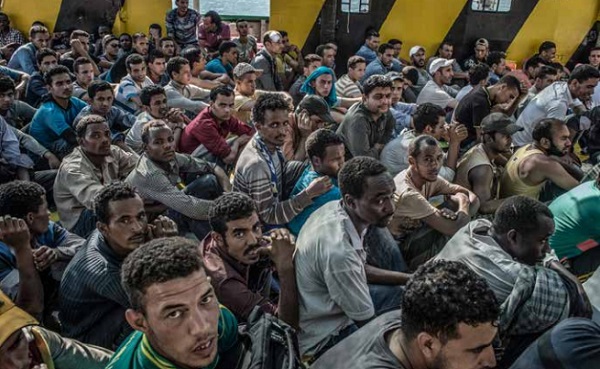
"We will remember 2015 as the year in which the European Union failed to take responsibility and to meet the need for urgent assistance and protection of over one million men, women and children," Médecins sans Frontières (MSF) Luxembourg has affirmed following the release of the international humanitarian organisation's report 'Obstacle Course Towards Europe'.
The report analysed the consequences of European measures in response to the refugee crisis and deemed Europe's policy of deterrence as not just a failure, but as an exacerbation of the crisis itself. The report drew on medical data collected from refugee-based projects and interviews with refugees to show how a lack of European response forced MSF and other NGOs to drastically intensify their assistance in Europe. According to MSF, the organisation has never before undertaken so many projects and collaborators in Europe or been brought in to save lives at sea.
"That people are seeking better living standards in Europe is not new," commented Brice de le Vingne, MSF Director of Operations. "But the situation became so dramatic in 2015 that we could not help but respond. The EU and its Members States are combining deterrence policy and chatoic response to the humanitarian crisis. The result is that the situation for tens of thousands of vulnerable men, women and children worsened. In 2016, the EU must become aware of the human suffering that this policy entails, take responsibility and learn from mistakes."
According to the NGO, this deterrence policy does not actually dissuade anybody, but instead makes the journey even more perilous, challenging and expensive for those who embark on it. In 2015, at least 3,771 people died in the Mediterranean Sea, with MSF claiming that the EU effectively pushed refugees into the hands of smugglers and rafts or boats that are not fit for the journey.
An official MSF statement accused Greek authorities of acting in a "deplorable manner" to refugees, as well as blocking humanitarian organisations willing to take charge of receiving refugees in its stead. In Italy, the organisation renounced the unacceptable living conditions of refugees in Pozzallo, as well as the poor conditions preventing staff from being able to work there.
MSF was of the opinion that the vast majority of medical problems encountered by refugees could have been avoided had they been allowed safe passage and received suitable living arrangements. In Serbia, 80% of the illnesses found were a direct consequence of the journey undertaken.
"We know that deterrence will not be effective in 2016," stated Aurélie Ponthieu, a migration expert with MSF. "People will continue to seek a better future in Europe, for them and their families. Europe must provide procedures for safe and legal access and stop playing with the lives of human beings. In 2015, Europe favoured a policy to protect its borders against refugees. We hope that in 2016, we will no longer have to protect refugees against European policy."
The publishing of the report preceded the informal meeting of Justice and Home Affairs Ministers taking place Monday, at which those present are expected to discuss the protection of EU borders in the face of the crisis and the implementation of the future European Border and Coast Guard Agency.
Photos by MSF








